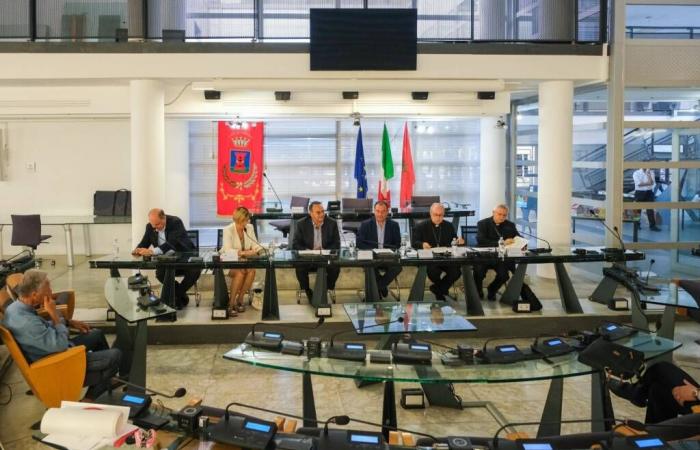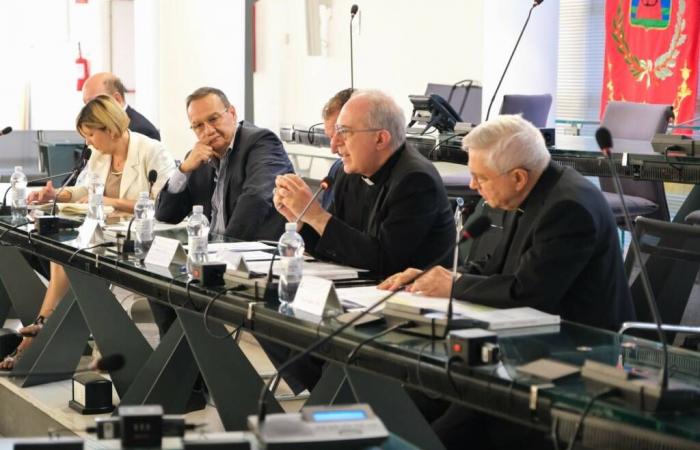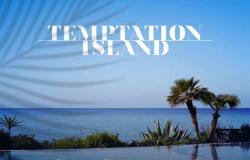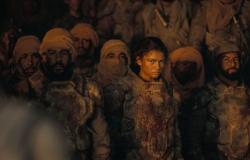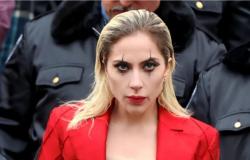Monsignor Toso’s book “Church and Democracy” was presented yesterday in the City Council in Fiumicino as part of the literary meetings promoted by the Department of Culture and the Presidency of the Council. A debate on the themes of democracy and individual freedom in civil commitment that saw Monsignor Mario Toso in dialogue with Monsignor Gianrico Ruzza and Mayor Mario Baccini.
The formation of the individual in democracy education as an instrument for the freedom of the individual is the message that His Excellency Monsignor Mario TosoArchbishop of Faenza-Modigliana, wanted to underline during the presentation of the volume Church and Democracyin the council chamber of the Municipality of Fiumicino.
Toso stressed the urgency of education for freedom, which must however be centered on respect for others. Each person is singular but is also open to the truth, to goodness, to God, to solidarity: «freedom is also a commitment on the part of each person to free others from chains». For the author «It is important that the welfare state that must allow individual and social rights» progresses in the growth of a «deliberative democracy that is not only participatory, in which citizens contribute to the creation of services».
“It is an achievement of the past centuries the conviction that the promotion of the human person is inseparable from the development of democracy, understood above all as the incessant construction of meaning and form of social and political life through the contribution of all”, writes Toso in the volume, a suggestion that Bishop Ruzza emphasized by supporting the need to look at training starting from the territory where those “intermediate bodies (unions, parties) that supported the individual in growth and in the comparison with society no longer exist. Today – Ruzza emphasized – we witness phenomena such as the Hikikomori of young people who become estranged, victims of what have been recognized as real mental pathologies, due to a lack of training and reception. It is important that we start again from young people, from dioceses, from all social categories that need to regroup on values. Our experience is precisely that of bringing together and appealing to those who want and must commit to responding to this need for democracy by carrying out a training school which as its first act has consulted the political world of the territory, appealing to the responsibility of the administrators” .
The Mayor echoed the bishops’ appeals Mario Baccini who reiterated the importance of “moving from individual responsibility to support collective responsibility by taking on the responsibility of being, as administrators of the territory who still have a direct dialogue with citizens and with real needs, the last bastion from which to begin again to educate in politics, in democratic participation, testifying with facts to the reality of the social doctrine of the Church that thinks of the common good, that acts for the community”.
On these concepts taken from the book “Church and Democracy” by the bishop Mario Toso of the Diocese of Faenza-Modigliana, the journalist Emma Evangelista he moderated the debate by pressing the discussion on the current dynamics of active participation in public and electoral life, on abstentionism and on the issues of technocracy in comparison with the democratic system.
The debate took place with the contribution of the Prime Minister, Roberto Severino who did the honors of the house and the chief of staff Richard Graziano.
The bishop Gianrico Ruzza, who was entrusted with the conclusions of the debate, observed that in this path of exegesis outlined in the book there is the opportunity for the reader to clearly grasp the historical turning points of the social doctrine of the Church, underlining that «there is a primacy today of economics and finance over politics and this is not good.” The last idea refers to the crisis of democracy identified in the “deconstruction of its ethical essence”. A high intensity democracy, as our brother Toso defined it, must have an ethical value reference, concluded Bishop Ruzza, “otherwise it becomes a series of rules without a soul, and without a soul there is no life”.

